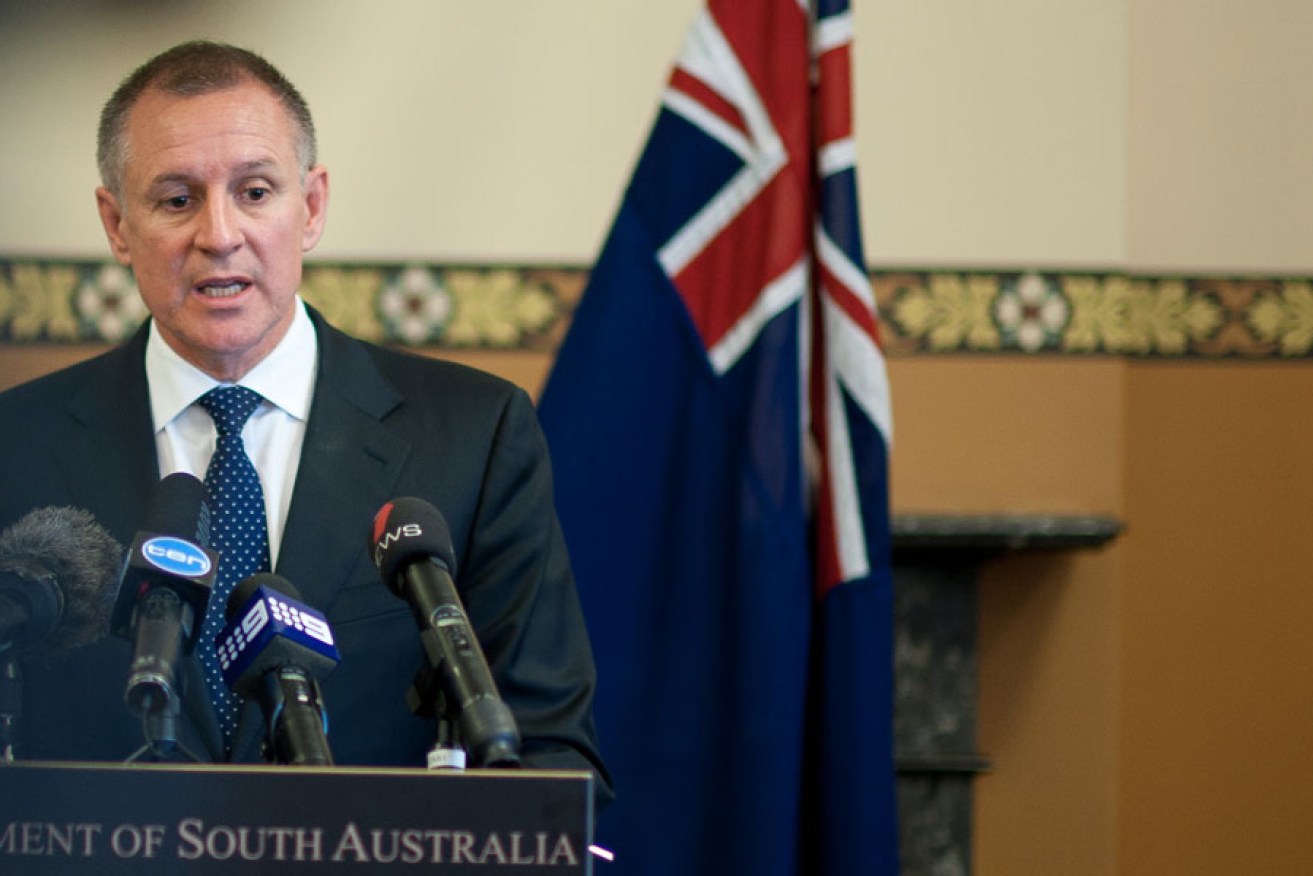The Auditor-General didn’t want a pay rise – but got one anyway


Premier Jay Weatherill: a government spokesperson says he didn't know the Auditor-General had requested an unchanged salary.
South Australia’s Auditor-General Simon O’Neill specifically asked for no more money but he’s been given a pay rise anyway, taking his salary over the $300,000 mark.
While O’Neill didn’t want a larger salary, Premier and Treasurer Jay Weatherill asked the Remuneration Tribunal to adjust the salaries of O’Neill and other statutory office holders in line with any increase to public sector executive salaries.
The South Australian Remuneration Tribunal agreed with Weatherill and handed out a 2.5 per cent increase, against O’Neill’s wishes.
O’Neill has been regarded as a tenacious watchdog of taxpayers’ funds, most notably through his scathing assessments of financial management in the Health Department.
In its determination reported in last week’s Government Gazette, the Remuneration Tribunal said O’Neill had wanted no change to his salary.
“The Auditor-General conveyed his view of ‘the need for continuation of the exercise of salary constraint due to the tight budgetary conditions being experienced by the South Australian public sector and its workforce’.
“The Auditor-General concluded that ‘there should be no alteration to my remuneration’.”
A State Government spokesperson said the Government wasn’t aware of any individual submissions to the tribunal by any of the five statutory officers.
“The Government’s submission was for a rise that had regard to the movement of salaries for public service executives, consistent with past practices,” the spokesperson said.
The tribunal reports that the Premier made a submission that it should consider several factors in setting the statutory officers’ salaries, including:
- The economic indices published by the Australian Bureau of Statistics for the South Australian Labour Price Index (which indicated that wages and salary costs for employees had increased by 3.3% in the year to 30 June 2013) and the Consumer Price Index for Adelaide (which showed an increase of 2.0% for the year to 30 September 2013);
- The underlying inflation rate for September 2013, which showed the measure of ‘underlying’ inflation in Australia at an annual growth of 2.3%;
- The national and global economic climate of uncertainty and its impact on South Australia’s finances;
- Enterprise bargaining salary increases provided in the current public sector enterprise agreements in 2012 and 2013 averaging 3% per annum.
“The Premier submitted that it is in the public interest that the increases in salaries for the relevant statutory office holders have regard to, and not significantly differ from increases applicable to other public sector positions.”
Then, the tribunal noted that “on 16 December 2013, the Government granted a 2.5% adjustment to members of the South Australian Executive Service with effect from 1 July 2013”.
In conclusion, the tribunal said: “Having noted recent salary adjustments in the public sector, recent trends in the level of remuneration adjustments both nationally and within the state,comments and submissions from the statutory office holders and the Premier, the Tribunal has determined that a salary increase of 2.5% is appropriate.”
The determination means that the Auditor-General’s salary increased from $296,558 to $303,972.
The same percentage increase was granted to the Electoral Commissioner (new total salary $190,457), the Deputy Electoral Commissioner ($138,514), the Employee Ombudsman ($143,381) and the Health and Community Services Complaints Commissioner ($224,009).
The new salaries will be backdated to 1 July 2013, in line with the Government’s pay rise to executive level bureaucrats.
O’Neill didn’t respond to InDaily’s request for further comment.




